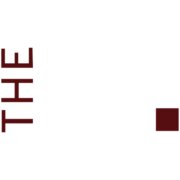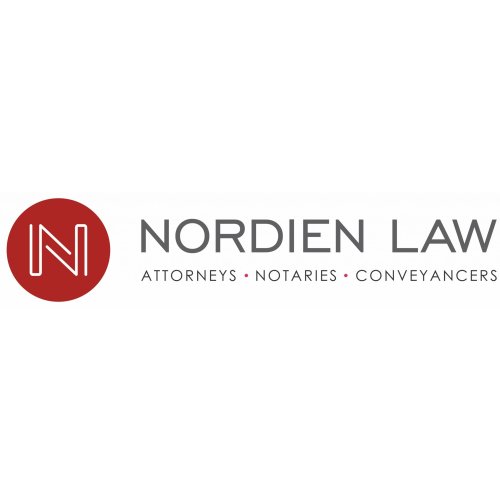Best Foreclosure Lawyers in Cape Town
Share your needs with us, get contacted by law firms.
Free. Takes 2 min.
Free Guide to Hiring a Real Estate Lawyer
List of the best lawyers in Cape Town, South Africa
About Foreclosure Law in Cape Town, South Africa
Foreclosure is a legal process through which a lender attempts to recover the balance of a loan from a borrower who has stopped making payments. This is achieved by forcing the sale of the asset used as collateral for the loan, typically a home. In Cape Town, South Africa, foreclosure follows legal procedures set out in the National Credit Act and other relevant legislation. The process is designed to fairly treat all parties involved while recouping debts in a manner adhering to South African law.
Why You May Need a Lawyer
Individuals may require legal help with foreclosure in several situations. If you are a homeowner struggling to meet mortgage payments, a lawyer can provide advice on negotiating terms with your lender or exploring alternatives to foreclosure. Additionally, if foreclosure proceedings have already commenced, legal counsel is vital to ensure your rights are protected, assess the validity of the lender's claim, and explore avenues for delaying or stopping the process. Property owners might also need legal representation if they suspect improper conduct or errors in the foreclosure process.
Local Laws Overview
In Cape Town, several key legal aspects impact foreclosure. The National Credit Act is central, as it provides guidelines for loan agreements and consumer protection. It mandates credit providers to follow strict procedures before proceeding to foreclosure, including notifications and attempts to reach consensual resolution agreements. Additionally, laws relating to the Insolvency Act and Magistrates' Court Act are relevant when considering the rights of both creditors and debtors. Legal processes require strict adherence to procedural fairness, and deviations can provide a defense against foreclosure.
Frequently Asked Questions
What is the first step a lender must take to initiate foreclosure?
Before initiating foreclosure, the lender must send a notice of default to the borrower, indicating non-payment and providing a chance to rectify the situation.
Can foreclosure be avoided once the process has started?
Yes, foreclosure can sometimes be avoided by negotiating a payment plan or refinancing the loan. Legal advice is crucial at this stage to explore all options.
How long does the foreclosure process typically take in Cape Town?
The duration can vary, but it generally takes several months from the initial default notice to the actual sale of the property.
Do borrowers have rights during foreclosure?
Yes, borrowers have several rights, including the right to be notified, to seek legal recourse, and to contest improper procedures.
What costs are associated with foreclosure?
Foreclosure entails legal fees, court costs, and possibly costs related to property valuation and auctioning.
Can a foreclosure affect my credit score?
Yes, foreclosure usually has a significant negative impact on credit scores, affecting future borrowing opportunities.
Is legal aid available for foreclosure cases?
Legal aid may be available for qualifying individuals based on income and vulnerability, providing support for those unable to afford private legal representation.
What happens if the property is sold for less than the outstanding debt?
If the sale doesn't cover the debt, the borrower may still owe the remaining balance, known as a deficiency.
Can you reclaim your property after foreclosure?
Once a property is sold, reclaiming it is generally not possible unless the sale is contested and voided through legal action.
What role does mediation play in foreclosure proceedings?
Mediation can help negotiate settlements and work out payment plans to potentially avoid foreclosure, making legal advice beneficial for favorable outcomes.
Additional Resources
For those seeking guidance, several resources can be helpful:
- South African Human Rights Commission - Provides assistance related to consumer rights.
- National Credit Regulator - Offers information and avenues for disputes with credit providers.
- Legal Aid South Africa - Offers legal help for eligible individuals facing foreclosure.
Next Steps
If you find yourself facing foreclosure, it's essential to act promptly. Consider the following steps:
- Consult a legal professional specializing in foreclosure to assess your situation and explore your options.
- Contact your lender to discuss potential options for restructuring your loan or settling outstanding debts.
- Explore legal aid options if you cannot afford a lawyer.
- Collect and review all loan documentation, including communication with your lender, to ensure you understand your obligations and rights.
- Stay informed about legal developments in the foreclosure process to protect your and your family's interests.
With informed guidance and timely action, you can navigate the foreclosure process more effectively and seek outcomes favorable to your circumstances.
Lawzana helps you find the best lawyers and law firms in Cape Town through a curated and pre-screened list of qualified legal professionals. Our platform offers rankings and detailed profiles of attorneys and law firms, allowing you to compare based on practice areas, including Foreclosure, experience, and client feedback.
Each profile includes a description of the firm's areas of practice, client reviews, team members and partners, year of establishment, spoken languages, office locations, contact information, social media presence, and any published articles or resources. Most firms on our platform speak English and are experienced in both local and international legal matters.
Get a quote from top-rated law firms in Cape Town, South Africa — quickly, securely, and without unnecessary hassle.
Disclaimer:
The information provided on this page is for general informational purposes only and does not constitute legal advice. While we strive to ensure the accuracy and relevance of the content, legal information may change over time, and interpretations of the law can vary. You should always consult with a qualified legal professional for advice specific to your situation.
We disclaim all liability for actions taken or not taken based on the content of this page. If you believe any information is incorrect or outdated, please contact us, and we will review and update it where appropriate.















